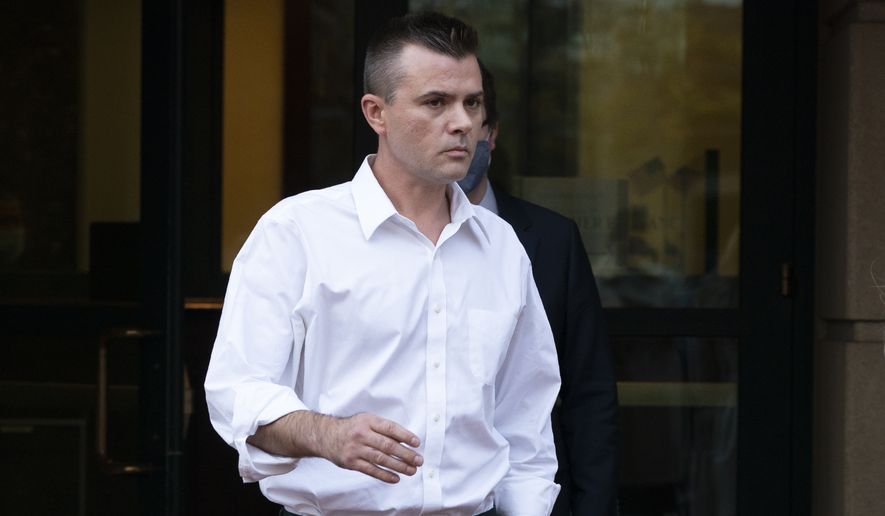A federal judge on Thursday rejected a request to dismiss special counsel John Durham’s criminal case against a Russian analyst who was a key source for a 2016 dossier that contained salacious and unverified allegations tying former President Donald Trump to Russia.
U.S. District Judge Anthony J. Trenga ruled that the analyst, Igor Danchenko, must stand trial for allegedly lying to the FBI, paving the way for his trial to begin on Oct. 11.
Judge Trenga did not offer any reasoning in his one-page order denying Mr. Danchenko’s request to dismiss the case.
The ruling is a win for Mr. Durham, who was tasked by former Attorney General William P. Barr with looking into the intelligence communities’ investigations into purported links between Mr. Trump and Russia.
Still, Mr. Durham now has to convince a federal jury in Alexandria, Virginia, next month that Mr. Danchenko lied to the FBI about how he gathered his information for the so-called Steele Dossier.
The dossier, a collection of anti-Trump claims compiled by British ex-spy Christoper Steele, has been a key focus of Mr. Durham’s probe.
Mr. Danchenko has denied that he lied to the FBI during a series of interviews in 2017. His legal team earlier this month asked the judge to dismiss the five-count indictment, saying the case was an example of “extraordinary government overreach.” They said his statements to the FBI were true or at worst, ambiguous.
As Mr. Durham tells it, Mr. Danchenko, who was billed as the primary sub-source for the Steele dossier, collected his information from a U.S.-based public relations executive who lacked firsthand knowledge of the information he was conveying. That public relations executive was Charles J. Dolan, a Washington-based Democratic operative with close ties to Bill and Hillary Clinton.
In another instance, Mr. Danchenko allegedly sourced a claim to the head of a Russian-American business group, when, in fact, he had hadn’t had any contact with him.
Prosecutors wrote in the indictment that “Danchenko fabricated these facts.”
Mr. Durham said the lies were “material to the FBI” because his claims “played a role in the FBI’s investigative decisions and sworn representations that the FBI made to the Foreign Intelligence Surveillance Court.”
The court approved a wiretap of Trump campaign aide Carter Page because the FBI suspected he had ties to Russia.
The dossier was part of the FBI’s justification for surveilling Mr. Page and for the larger Russian collusion probe, dubbed “Crossfire Hurricane.”
• Jeff Mordock can be reached at jmordock@washingtontimes.com.




Please read our comment policy before commenting.